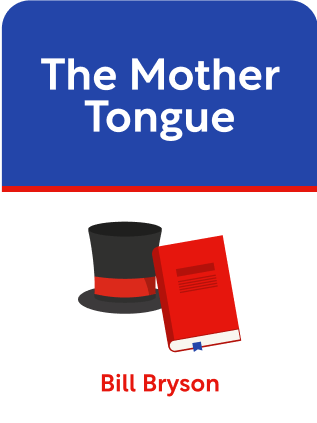

This article is an excerpt from the Shortform book guide to "The Mother Tongue" by Bill Bryson. Shortform has the world's best summaries and analyses of books you should be reading.
Like this article? Sign up for a free trial here .
What was the English spelling reform? And what were the reasons behind the efforts to standardize the conventions of English spelling?
The incongruity between English spelling and pronunciation has been a defining feature of the English language for most of its history. This has led some notable public figures to call for the English spelling reform to bridge the two together.
Keep reading to learn about the English spelling reform and why it failed.
A Call to Standardize English Spelling
For much of the history of the language, words defied standard spelling, with even Shakespeare offering a bewildering array of different and inconsistent spellings for the same words throughout his works. This incongruity has to led some notable public figures to champion more robust efforts at spelling standardization and simplification by the end of the 18th century. These figures included American Founding Father Benjamin Franklin, famed lexicographer Noah Webster (who actually advocated legal consequences for improper spelling), industrialist and philanthropist Andrew Carnegie, US President Theodore Roosevelt, and author Mark Twain. By the late 19th century, spelling reform groups like the American Philological Association even began to lobby for new spellings like tho, wisht, and hav in an effort to simplify American English spelling and have it more closely align with pronunciation
These groups decried the irrationality of spelling. After all, what good reason was there to call the money you owe to someone else a debt rather than a det? Leaders of this time belonged to the Progressive Era, which focused on efficiency and rationality and saw little need to pay deference to outdated custom and tradition. Why should they respect the hoary old conventions of English spelling?
The Difficulties of Spelling Reform
Despite the great passion and energy poured into spelling reform efforts, however, they mostly failed in their mission. Language is such a fluid and organic tool, used differently by so many people and susceptible to innumerable internal and external influences, that it is quite impossible for some centrally directed body to impose reforms top-down.
The pretensions of political and cultural leaders notwithstanding, the development and evolution of language has always been a bottom-up process. Two hundred years ago, people spelled shoppe and musick. No state mandate ordered people to change the way these words were spelled—on their own, people took the initiative to drop the unnecessary letters from them.
Today, we are used to the non-phonetic spellings of words like bread. It would be deeply strange and unnatural for us to write bred. And of course, bred is itself a word, which would merely create confusion. Bread and bred are homophones, words that sound the same but are spelled differently. The high number of homophones in English gives the non-phonetic spellings of many words a useful purpose. Thus can we distinguish might from mite, great from grate, and sure from shore. Perhaps our spelling isn’t so irrational after all.

———End of Preview———
Like what you just read? Read the rest of the world's best book summary and analysis of Bill Bryson's "The Mother Tongue" at Shortform .
Here's what you'll find in our full The Mother Tongue summary :
- How English became a global language
- How the invention of the printing press led to standardization of written English
- Why English dictionaries are the most comprehensive found in any language






